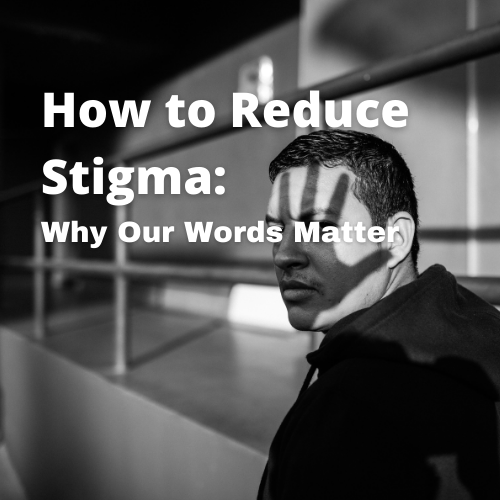
How to Reduce Stigma: Why Our Words Matter
In recent years there is a growing amount of conversation about how to reduce stigma and why it’s important when it comes to both substance use and mental health conditions.
The biggest misconceptions about substance use disorders are that they are a choice or a character flaw. This can lead to embarrassment and shame to those working on treatment or entering recovery. If you ask anyone in recovery it’s safe to say that almost all, if not all would say they never would have chosen the path of using substances and not being able to control it. This is an illness, not a choice and should be treated with the same dignity as heart disease, cancer, diabetes, etc.
Words matter
The first step to reduce stigma is to be conscious of the words you use. Below are examples of words that carry stigma and what to use instead.
Words to avoid |
Words to reduce stigma |
| Addict or alcoholic | Person with a substance use disorder |
| Drug problem, drug habit | Substance use disorder |
| Drug | Substance |
| Drug abuse | Substance misuse |
| Clean | In recovery |
| Dirty | Actively using |
| Reformed addict/alcoholic | Person in recovery |
| Clean date | Recovery date/Sobriety date |
| Crazy | Person presenting with unusual symptoms |
| Committed suicide | Died by suicide |
It may sound like something simple or like it may not make a difference. However when you say the words out loud, take notice of how they sound and feel. There is a positive note to the words we suggest using instead.
Together we can continue to reduce stigma, allowing more people to seek treatment without shame or embarrassment.
How to find a the right treatment center for you
When searching for the right treatment center center the first thing aside from location is to see what their continuum of care is. Ask the following:
- Do they provide inpatient residential services after detox?
- Can they get me in immediately after?
- Once residential treatment is complete what’s next?
Choose a center with a full continuum of care because it allows the individual to stay on target with their recovery goals. Here at Lifeline Connections, we offer all of these things. Additionally our compassionate counselors are a phone call away to help you get started on your recovery journey. Call (360) 397-8246 ext. 30500 to schedule an admit appointment.
